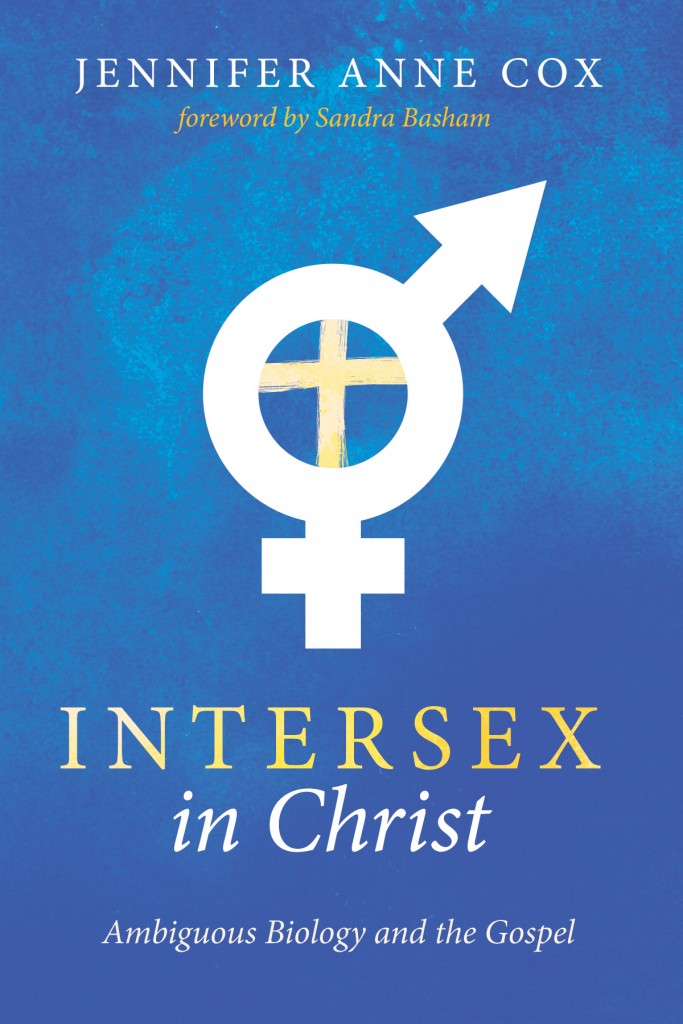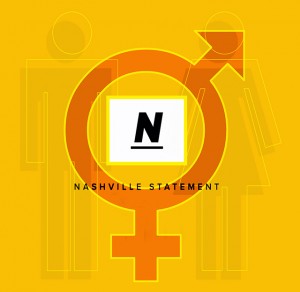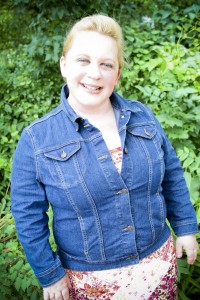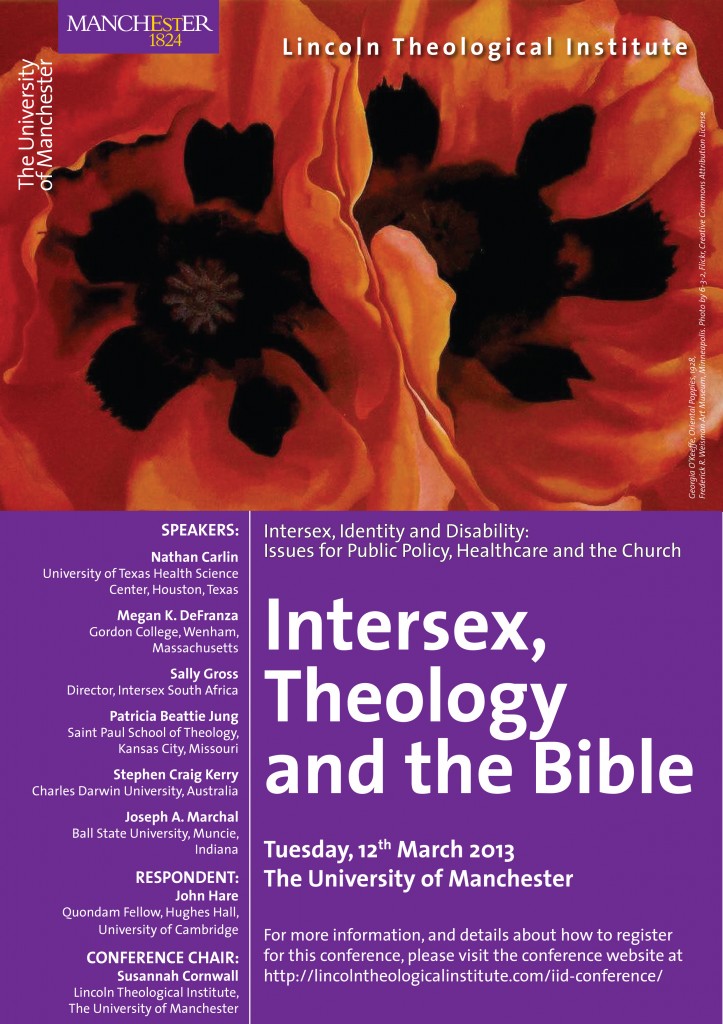
The Author:
Jennifer Anne Cox, PhD. teaches systematic theology as an Adjunct Faculty Member at Tabor College in Perth, Western Australia. Her newest book, Intersex in Christ: Ambiguous Biology and the Gospel was published recently by Cascade Books. I was given a copy in exchange for an honest review.
Disclaimer:
As a Christian with an intersex condition, I’m too close to this subject to give an entirely unbiased review. Please keep that in mind.
Introduction:
The author’s stated goal was to write an evangelical response to intersex, and to do so from a particular world view. Her words are directed at Christians.
“Yet an evangelical Christian response, which considers intersex through the lens of Christ, his person and work, is needed.” —page 2
Reaching Christians regarding intersex:
To the evangelical Christian, her message then is—the Gospel is as much for someone with an intersex condition as it is for you. Stop abusing these people.
Jennifer Cox addresses intersex from an evangelical point of view without reducing the complexity of human biology to the presence or absence of a Y chromosome. She doesn’t lecture intersex people about embracing the binary. Our bodies are fine the way they are.
A number of Christian scholars claim an intersex person’s ‘true’ sex can be determined from some indicator of God’s creational intent. So I was a bit surprised this author didn’t follow that well-trodden path.
Indeed, after discussing 1 Corinthians 7:17-24, she says:
“It is quite acceptable to live with the gender assigned at birth, and even possibly scribed into the flesh by surgery. God would not see this as a sin. The situation in which the intersex person finds himself or herself when coming to know Jesus as Lord is a situation in which that person may validly remain. However, it is not a sin to transition to the other gender. There is abundant grace in Christ. A decision about gender for the intersex person should be made according to grace and with the guidance of the Holy Spirit. The fact that this is difficult and may take some time to work through is not an insurmountable problem. Christians should recognize the grace of God in this matter and support the intersex person in the decision-making process.” —page 151
For that statement alone, I will be giving copies of this book to evangelical leaders and Christian friends willing to read it. I dearly wish those who signed the Nashville Statement would take the above quote to heart.
In her chapter on Sex, Gender, and Intersex, the author compares complementarian and egalitarian positions. For reference, most of the signatories to the Nashville Statement would claim to be complementarian. Jennifer Cox, is an egalitarian. As she says:
“I will advocate for a more egalitarian position, particularly in church. The egalitarian position would provide no hindrance to intersex persons taking up any role in church or society.” —page 78
She makes a strong case for her views and rightly associates the more extreme form of Complementarianism with Arianism, a heresy.
Although I have some areas of disagreement with her theology, I think she presents her case well.
So, yes, send a copy of this book to your Southern Baptist or Presbyterian Church in America friends.
About the Resurrection:
Although the author deals with a number of different subjects, I want to comment in more detail on her views of the Resurrection.
My mother once asked me whether I’d be male or female in Heaven. I told her that I didn’t know and wouldn’t care. My Redeemer loves me.
Jennifer Cox insists that our resurrected bodies will be binary—entirely male or female. Like many Christians, she dismisses the verses that speak about a lack of sex—or at least sexual function—in our new bodies. She says:
“Intersex bodies will be healed; intersex people will be restored according to God’s creative intent. This is not to say that identity will be in question, since identity is secured in Christ. However, which intersex person will be male and which female cannot be known in the present.” —page 127
So, rather than pointing to the presence or absence of a Y chromosome to determine ‘true’ sex, she maintains that only God knows, and He’ll make that clear at the Resurrection.
My fallen rational mind isn’t the measure of all things. But some of the statements evangelicals make about sex seem inconsistent to me.
There will be no marriage in Heaven. No sexual activity. No reproduction. The point of our resurrected bodies being sexed, according to Jennifer Cox is:
“Being male and female is a very significant part of being human, because this difference enables people to be ‘fellow humanity.’ Human sexual differentiation is part of our creaturehood. Therefore, we must expect that in the resurrection male and female sexual distinctions will remain.” —page 139
According to some evangelicals, being male or female is essential to our humanity. Yet being intersex is a disorder that can be healed without changing our identity. A binary sex is so central to our being that our resurrected bodies must be sexed. But intersex will be erased.
At a glance, my naked body’s female—wrinkles, sagging skin, and all. My gender wanders at times, but remains well within the bounds expected of a woman. That’s me.
If I rise from the dead with a completely female body, I won’t complain. It would seem odd to me, however, to suddenly have a functional reproductive system in a place where such will never be used.
If I rise from the dead with a completely male body, I won’t complain. But my gender would also need to change. Otherwise, I would become like the transgender people whom the author condemns because:
“their understanding of their own selves, is incongruous with their biological sex.” —page 38
In another chapter, the author says that:
“Identity is not primarily found in a physical attribute or the shape of our genitals.” —page 140
She also says,
“Human beings were created with bodies and we cannot disconnect ourselves from those bodies. In some sense we are our bodies.” —page 129
I agree that our bodies are an important part of our selves. In the Resurrection our bodies will still reflect our selves. If someone who lived most of her life as a woman—though intersex—is resurrected with a functional male reproductive system—how can that still be her self? And we shall surely be recognizable as ourselves in our new bodies.
Job said:
“I know that my redeemer lives, and that in the end he will stand on the earth. And after my skin has been destroyed, yet in my flesh I will see God; I myself will see him with my own eyes—I and not another. How my heart yearns within me!” —Job 19:25-27
Reaching those with an intersex condition:
What about my intersex friends who aren’t Christians? Will I recommend the book to them?
No. It’s not directed at non-Christians. But I hope enough evangelicals read Intersex in Christ that the attitudes of Christians toward intersex people change. From what I’ve read in this book, I suspect the author shares that same vision.
“We must love people as they are, while also considering what they will become.” —page 5
Some Christians have made a point of telling me that intersex is a result of the Fall. Okay. But if you tell a woman in labor that her pain is due to the fall of mankind into sin, she’ll never let you share the Gospel with her. Love her first. Help her through that pain. Show her you care.
When trying to reach someone who is intersex, you can’t start with a view that we’re physically broken. And be aware that words you consider ‘the truth in love’ can still injure us.
The author says:
“It is false to declare that everything that occurs naturally is intended by the Creator to be that way. Not everything that exists necessarily ought to exist.” —page 58
I took that as, “You should not exist.” Is that fair of me? Perhaps not. But don’t expect an intersex person who reads Intersex in Christ to respond well to such things.
Remember that I said I’m not unbiased. I interpret language through the context in which I live and my particular history as both a Christian and intersex.
I don’t believe the author meant anything untoward by any of her statements. It’s just my cPTSD kicking in. We who are intersex—at least my generation—live in a world altered by trauma. Not caused by our being intersex, but rather by how people react to our differences.
It’s not that unusual for Christians to try to erase intersex. By minimizing our numbers. By reducing sex to a single biological parameter.
By assuming that we’re unhappy with our bodies. That intersex is a medical disorder rather than a part of the diversity of God’s good creation. By telling us we need or want to be healed.
By looking for our ‘true’ sex. By objecting to the gender we choose.
It’s unfair to suggest that this book actually says any of those things. But a number of my intersex friends are understandably sensitive. So, no, I’m not likely to recommend the book to them, except as something to give their Christian friends.
Drawing from Intersex Experience:
Many of the quotes the author uses are from intersex people I know, or from doctors I’ve seen or scholars I’ve corresponded with.
Megan DeFranza is one of my closest friends. Susannah Cornwall is one of the most winsome people you’d ever want to meet.
I was a member of ISNA. I’ve been involved with or attended intersex support group meetings for nearly twenty years. I know quite a few of the intersex people the book quotes.
I’ve met Doctors Reiner and Migeon and Berkovitz and Creighton and Minto. I know what it’s like to spread my legs with more than just my own doctor present. I’ve had genital surgeries to repair previous failed ones.
I’m delighted that the author quotes so many intersex people. It shows that she did her homework. That she cares to listen to us. But I hope that she has taken or will take the time and effort to develop intimate friendships with enough intersex people to really understand us. I hope that the AIS-DSD support group will let her visit one of their annual meetings.
Ending on a Good Note:
To be fair, Jennifer Cox says a number of very positive things about intersex people:
“However a person is sexed—female, male, or intersex—the human body is very good.”—page 44
and
“this does not necessarily imply that people who are unambiguously sexed are closer to the image of God than those who are intersex.” —page 55
and
“To intersex believers, I want particularly to emphasize that you are acceptable to God without alteration, because you are created in his image, made because of love, and are valued and dignified as an intersex person.” —page 165
Intersex in Christ—give a copy to your Christian friends.








